Femoral Condylus Buttress Plate-III Video
Femoral Condylus Buttress Plate-III PDF
Femoral Condylus Buttress Plate-III Specification
| Product | Pic | Screw | REF. | Spec. |
| Femoral Condylus Buttress Plate-III |  | HA 4.5
HB 6.5 | RP3G2KZC5HL | 5H L |
| RP3G2KZC6HL | 6H L |
| RP3G2KZC7HL | 7H L |
| RP3G2KZC8HL | 8H L |
| RP3G2KZC9HL | 9H L |
| RP3G2KZC10HL | 10H L |
| RP3G2KZC11HL | 11H L |
| RP3G2KZC5HR | 5H R |
| RP3G2KZC6HR | 6H R |
| RP3G2KZC7HR | 7H R |
| RP3G2KZC8HR | 8H R |
| RP3G2KZC9HR | 9H R |
| RP3G2KZC10HR | 10H R |
| RP3G2KZC11HR | 11H R |
Advantages of XC Medico's Products
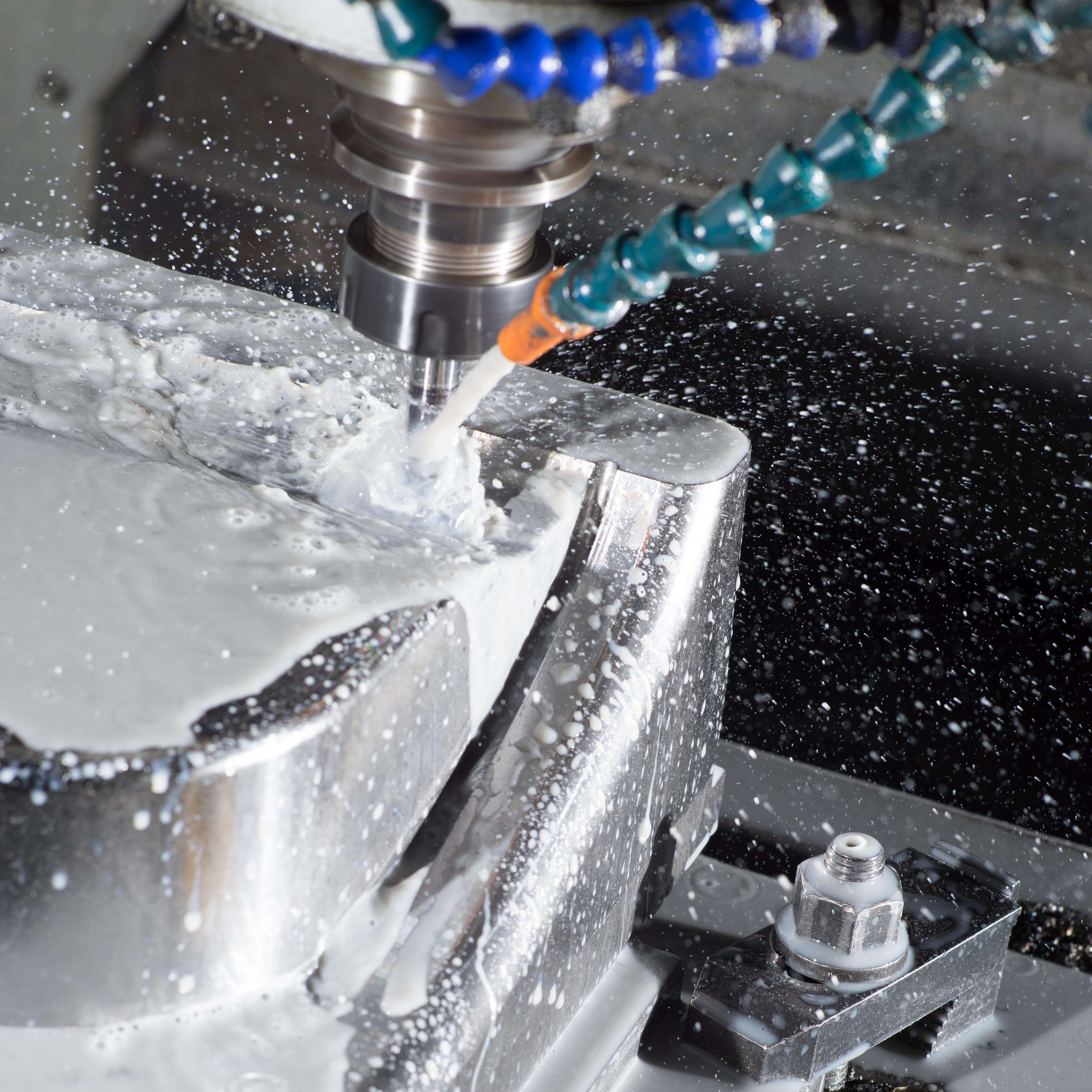
CNC Preliminary Processing
The computer numerical control technology is used to precisely process orthopedic products. This process has the characteristics of high precision, high efficiency, and repeatability. It can quickly produce customized medical devices that conform to the human anatomical structure and provide patients with personalized treatment plans.
| 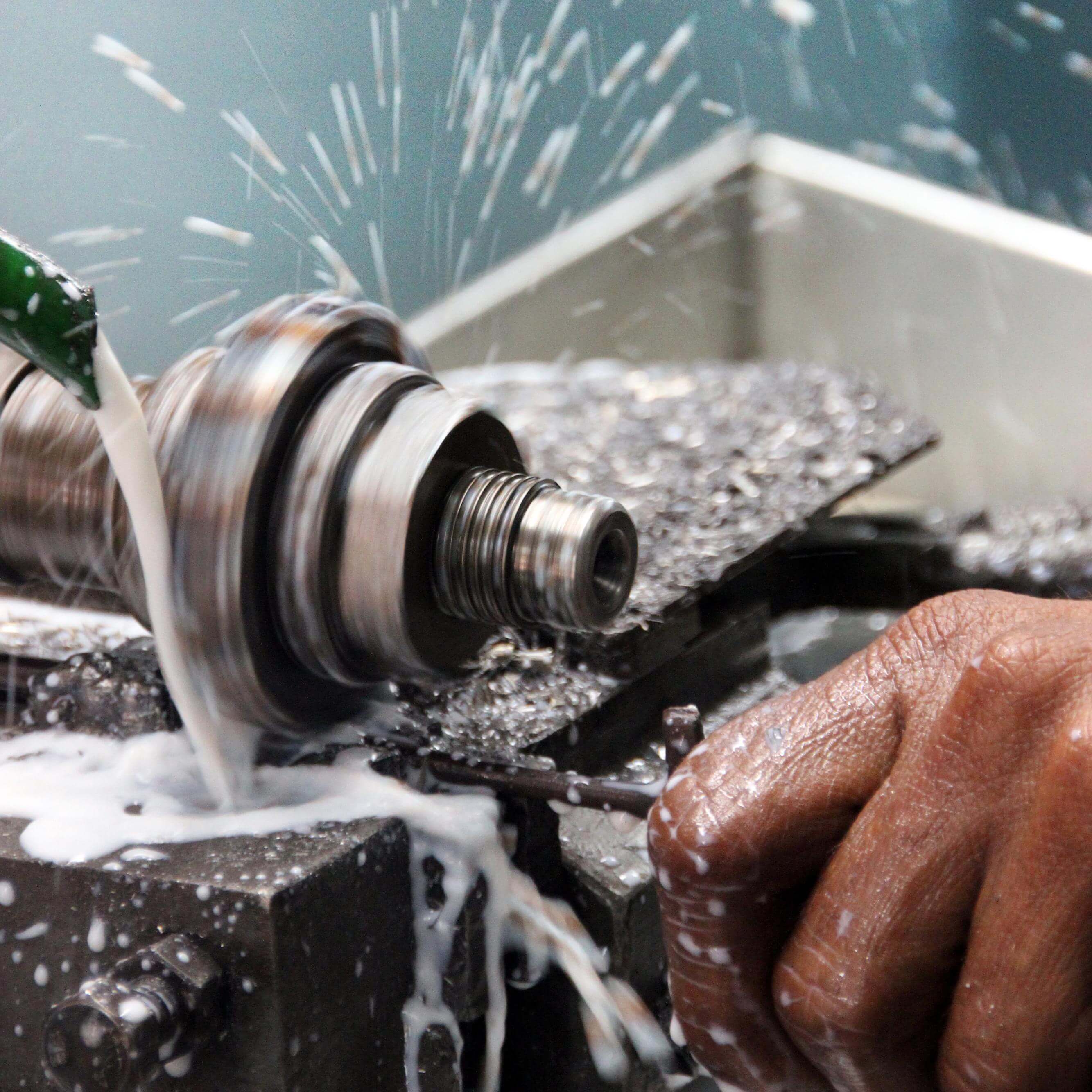
Product Polishing
The purpose of orthopedic products polishing is to improve the contact between the implant and human tissue, reduce stress concentration, and improve the long-term stability of the implant. | 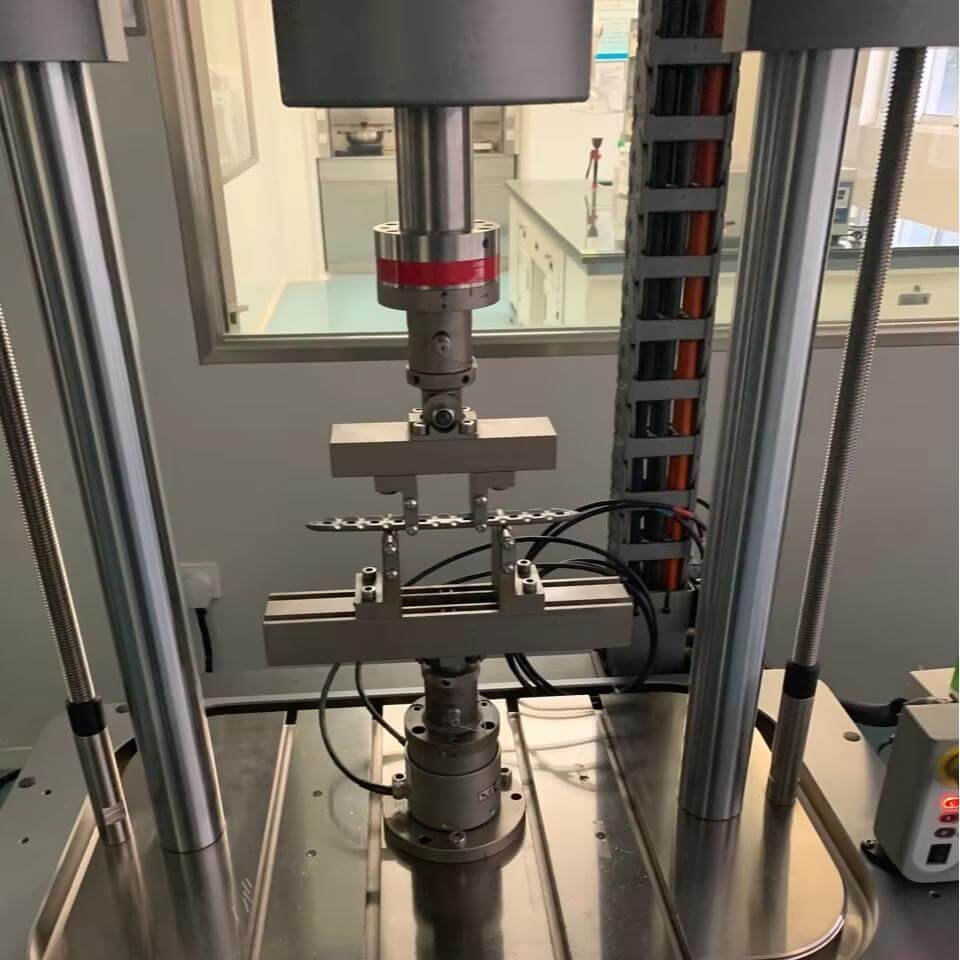
Quality Inspection
The mechanical properties test of orthopedic products is designed to simulate the stress conditions of human bones, evaluate the load-bearing capacity and durability of implants in the human body, and ensure their safety and reliability. |
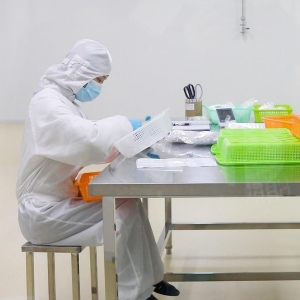
Product Package
Orthopedic products are packaged in a sterile room to ensure that the product is encapsulated in a clean, sterile environment to prevent microbial contamination and ensure surgical safety.
| 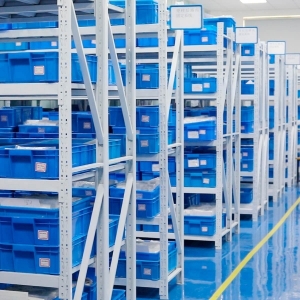 Product Warehouse Product Warehouse
The storage of orthopedic products requires strict in-and-out management and quality control to ensure product traceability and prevent expiration or wrong shipment. | 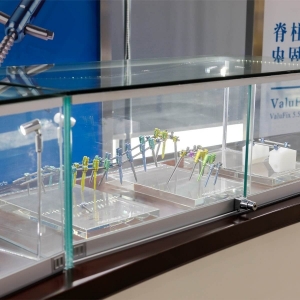 Sample Room Sample Room
The sample room is used to store, display and manage various orthopedic products samples for product technology exchanges and training. |
The Process To Cooperate With XC Medico
1. Ask Xc Medico Team For Femoral Condylus Buttress Plate-III Product Catalog.
2. Choose Your Interested Femoral Condylus Buttress Plate-III Product.
3. Ask For A Sample To Test Femoral Condylus Buttress Plate-III.
4.Make An Order Of XC Medico's Femoral Condylus Buttress Plate-III.
5.Become A Dealer Of XC Medico's Femoral Condylus Buttress Plate-III.
The Advantages To Be A Dealer Or Wholesaler Of XC Medico
1.Better Purchase Prices Of Femoral Condylus Buttress Plate-III.
2.100% The Highest Quality Femoral Condylus Buttress Plate-III.
3. Less Ordering Efforts.
4. Price Stability For The Period Of Agreement.
5. Sufficient Femoral Condylus Buttress Plate-III.
6. Quick And Easy Assessment Of XC Medico's Femoral Condylus Buttress Plate-III.
7. A Globally Recognized Brand - XC Medico.
8. Fast Access Time To XC Medico Sales Team.
9. Additional Quality Test By XC Medico Team.
10. Track Your XC Medico Order From Start To Finish.
Femoral Condylus Buttress Plate-III: A Comprehensive Guide
The Femoral Condylus Buttress Plate-III represents an advanced solution in the treatment of femoral condyle fractures. Fractures of the femoral condyles are critical injuries that can significantly impact knee joint function and the patient’s overall mobility. The Femoral Condylus Buttress Plate-III is designed to provide superior fixation, ensuring proper alignment and stability during the healing process. This comprehensive guide will explore the features, advantages, and clinical applications of the Femoral Condylus Buttress Plate-III, as well as its potential risks and future market trends.
What is Femoral Condylus Buttress Plate-III?
The Femoral Condylus Buttress Plate-III is a specially designed orthopedic implant used to stabilize fractures of the femoral condyles, which are the rounded areas of the femur that articulate with the tibia and form part of the knee joint. Fractures in this region typically occur as a result of high-impact trauma, such as falls, car accidents, or sports-related injuries, and they require precise surgical intervention to avoid complications like post-traumatic arthritis or malalignment.
This plate is designed to provide both compression and stability to the fractured bone, preventing further displacement during the healing process. It plays a crucial role in restoring proper joint function, reducing pain, and improving the patient's overall quality of life.
Femoral Condylus Buttress Plate-III Features
Anatomical Contouring
The plate is anatomically contoured to precisely match the femoral condyle's shape, minimizing the need for complex adjustments during surgery.
Buttress Design
The buttress design of the plate provides a robust support mechanism that resists compressive forces and prevents the condyle from collapsing or shifting during healing.
Locking Screw Mechanism
The plate utilizes locking screws that ensure a strong connection between the plate and the bone. This feature is especially beneficial in osteoporotic bones, as it reduces the risk of screw loosening or pull-out.
Radiolucent Properties
Certain versions of the plate are radiolucent, allowing for easy monitoring of the fracture healing process through X-rays without interference from the implant material.
Low-Profile Construction
The plate is designed to minimize irritation to surrounding soft tissues. Its low-profile structure ensures that it does not protrude excessively, reducing the risk of post-operative complications such as wound dehiscence or soft tissue inflammation.
Multiple Screw Hole Options
The plate offers a variety of screw holes, allowing surgeons to tailor the fixation to the specific fracture type and bone quality.
Femoral Condylus Buttress Plate-III Advantages
Enhanced Stability
The plate's anatomical design and locking mechanism provide excellent stability, which is essential for preventing malalignment or nonunion during the healing phase.
Faster Rehabilitation
With improved fracture fixation, patients can begin early weight-bearing and rehabilitation exercises, which significantly reduce recovery time and the risk of complications such as muscle atrophy or joint stiffness.
Minimized Soft Tissue Disruption
The low-profile nature of the plate reduces the need for extensive dissection of the surrounding soft tissues, preserving the muscles, tendons, and ligaments in the knee area.
Long-Term Functionality
By restoring the alignment and stability of the femoral condyle, the plate helps maintain the knee joint's long-term functionality, allowing patients to regain mobility and return to normal activities sooner.
Reduced Risk of Complications
With its secure fixation, the Femoral Condylus Buttress Plate-III lowers the likelihood of complications such as implant failure, infection, and delayed union.
Femoral Condylus Buttress Plate-III Treatment of Fracture Types
Comminuted Fractures
The plate is particularly effective in treating comminuted fractures, where the bone is broken into several pieces. The buttress design provides necessary compression and stabilization to maintain alignment during healing.
Tension-Sided Fractures
In fractures involving the tension side of the bone, the Femoral Condylus Buttress Plate-III helps prevent further displacement by providing additional support against external forces.
Bilateral Fractures
For fractures that affect both femoral condyles, often seen in high-energy trauma, the plate can be used to stabilize both condyles, restoring knee stability.
Osteoporotic Fractures
In patients with compromised bone density, the locking mechanism of the plate ensures a secure fixation, even in osteoporotic bones, which are more prone to implant failure.
Intra-Articular Fractures
The Femoral Condylus Buttress Plate-III is designed to manage fractures that extend into the joint space, reducing the risk of long-term joint instability and arthritis by restoring the joint surface accurately.
Risks of Femoral Condylus Buttress Plate-III Surgery
Infection
As with any surgical procedure, there is a risk of infection, particularly in patients with compromised immune systems or poor hygiene practices post-operatively.
Implant Failure
In rare cases, the plate or screws may fail, particularly if the fracture is not properly reduced or if excessive mechanical stress is applied to the joint.
Nerve or Vascular Injury
The femoral condyle is located near critical nerves and blood vessels. Surgeons must exercise caution to avoid inadvertent damage to these structures during surgery.
Nonunion or Malunion
Although the plate is designed to promote proper bone healing, nonunion (failure of the fracture to heal) or malunion (healing in an incorrect position) can still occur, especially in complex fractures or in patients with compromised healing capabilities.
Post-Operative Pain
Some patients may experience pain or discomfort at the implant site, particularly if the plate comes into contact with surrounding soft tissues or if there is inflammation at the surgical site.
Femoral Condylus Buttress Plate-III Future Marke
Rising Incidence of Trauma
With the increasing number of road traffic accidents, sports injuries, and falls, the demand for advanced fixation devices like the Femoral Condylus Buttress Plate-III is set to rise.
Aging Population
As the global population ages, the incidence of fractures, particularly osteoporotic fractures, is increasing, driving the need for reliable, durable fracture fixation solutions.
Technological Advancements
Ongoing improvements in materials science and implant design, such as the development of bioresorbable plates or enhanced locking mechanisms, will continue to drive innovation in the femoral fracture fixation market.
Minimally Invasive Surgery Trends
The move toward minimally invasive surgery will further increase the demand for low-profile, highly effective implants that can be used in less invasive procedures with faster recovery times.
Summary
The Femoral Condylus Buttress Plate-III is an innovative implant that offers an effective solution for stabilizing femoral condyle fractures. With its anatomically contoured design, locking screw mechanism, and low-profile construction, it provides enhanced fracture fixation while minimizing soft tissue disruption. This plate improves stability, promotes faster rehabilitation, and reduces the risk of complications such as nonunion, malunion, and implant failure. While surgical risks remain, the advantages of the Femoral Condylus Buttress Plate-III make it an indispensable tool in the treatment of complex femoral condylar fractures. Looking ahead, the market for such devices is expected to grow, driven by rising trauma cases, an aging population, and continued advancements in orthopedic implant technology.
Warm reminder: This article is for reference only and cannot replace the doctor's professional advice. If you have any questions, please consult your attending physician.
English
Русский
简体中文
繁體中文
العربية
Français
Español
Português
Deutsch
italiano
日本語
한국어
Nederlands
Tiếng Việt
ไทย
Polski
Türkçe
አማርኛ
ພາສາລາວ
ភាសាខ្មែរ
Bahasa Melayu
ဗမာစာ
தமிழ்
Filipino
Bahasa Indonesia
magyar
Română
Čeština
Монгол
қазақ
Српски
हिन्दी
فارسی
Kiswahili
Slovenčina
Slovenščina
Norsk
Svenska
українська
Ελληνικά
Suomi
Հայերեն
עברית
Latine
Dansk
اردو
Shqip
বাংলা
Hrvatski
Afrikaans
Gaeilge
Eesti keel
Māori
සිංහල
नेपाली
Oʻzbekcha
latviešu
অসমীয়া
Aymara
Azərbaycan dili
Bamanankan
Euskara
Беларуская мова
भोजपुरी
Bosanski
Български
Català
Cebuano
Corsu
ދިވެހި
डोग्रिड ने दी
Esperanto
Eʋegbe
Frysk
Galego
ქართული
guarani
ગુજરાતી
Kreyòl ayisyen
Hausa
ʻŌlelo Hawaiʻi
Hmoob
íslenska
Igbo
Ilocano
Basa Jawa
ಕನ್ನಡ
Kinyarwanda
गोंगेन हें नांव
Krio we dɛn kɔl Krio
Kurdî
Kurdî
Кыргызча
Lingala
Lietuvių
Oluganda
Lëtzebuergesch
Македонски
मैथिली
Malagasy
മലയാളം
Malti
मराठी
ꯃꯦꯇꯥꯏ (ꯃꯅꯤꯄꯨꯔꯤ) ꯴.
Mizo tawng
Chichewa
ଓଡ଼ିଆ
Afaan Oromoo
پښتو
ਪੰਜਾਬੀ
Runasimi
Gagana Samoa
संस्कृत
Gaelo Albannach
Sepeti
Sesotho
chiShona
سنڌي
Soomaali
Basa Sunda
Wikang Tagalog
Тоҷикӣ
Татарча
తెలుగు
ትግንያውያን
Xitsonga
Türkmençe
संस्कृत
ئۇيغۇرچە
Cymraeg
isiXhosa
ייִדיש
Yorùbá
isiZulu

















 Product Warehouse
Product Warehouse Sample Room
Sample Room




















